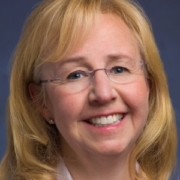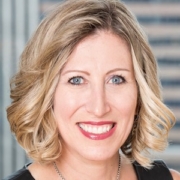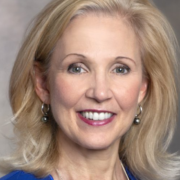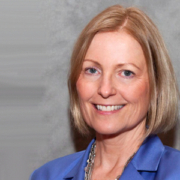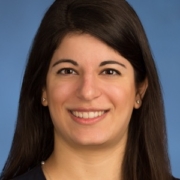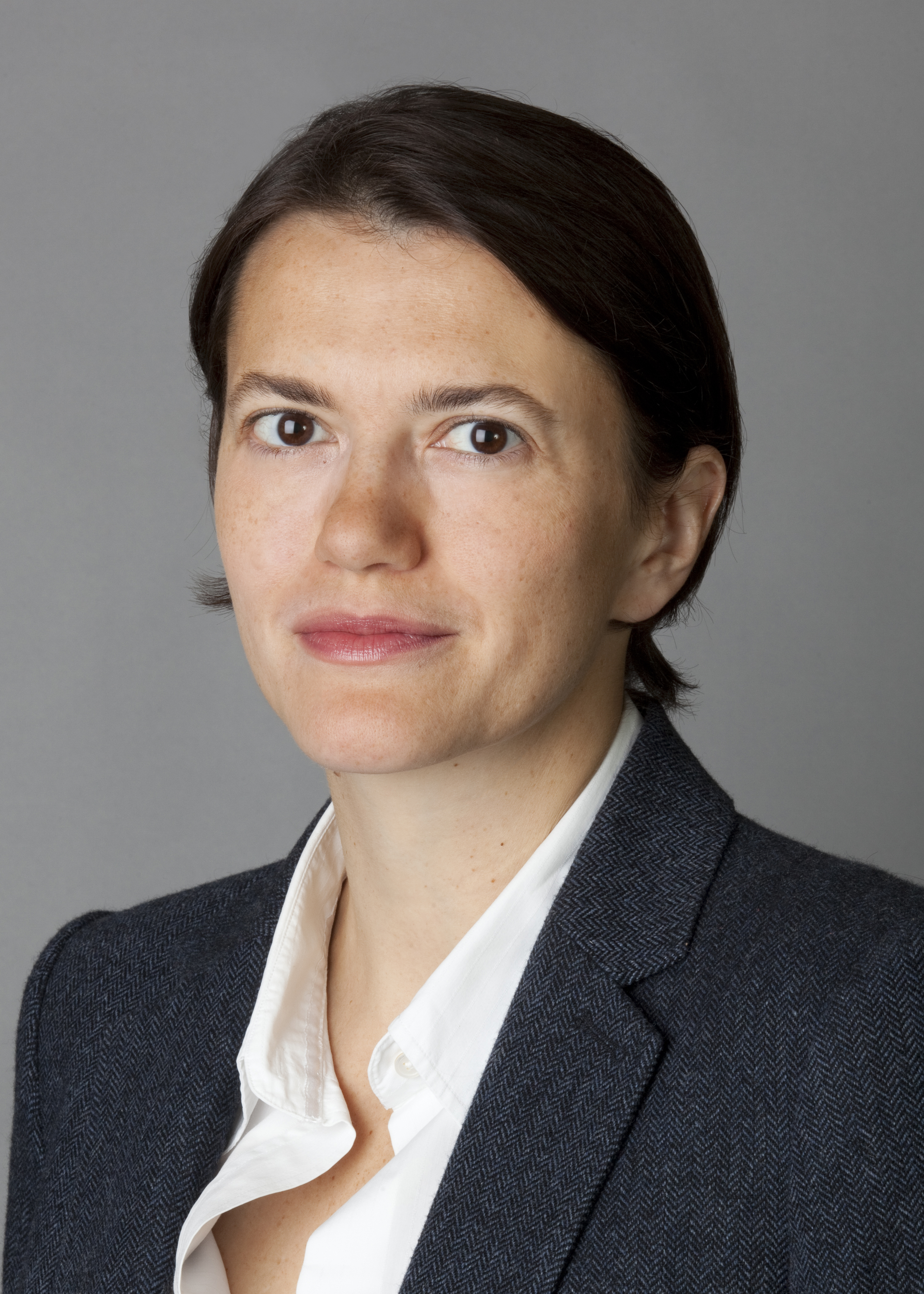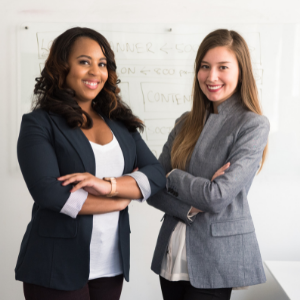Lara Aryani: Partner, Mergers & Acquisitions, Shearman & Sterling
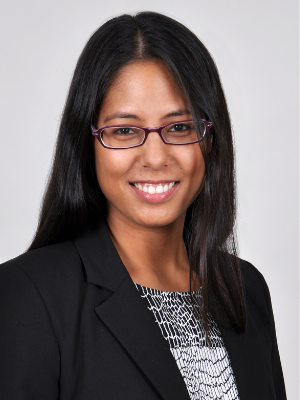 “I think what junior lawyers need to understand is that the conversations you have with your firm about what you want for yourself are brief and fleeting, but they’re iterative,” says Lara Aryani. “Associates need to be having these conversations early, they need to build the ramp, so that it is there when they need to actually use it.”
“I think what junior lawyers need to understand is that the conversations you have with your firm about what you want for yourself are brief and fleeting, but they’re iterative,” says Lara Aryani. “Associates need to be having these conversations early, they need to build the ramp, so that it is there when they need to actually use it.”
Aryani speaks to the broad and dynamic nature of M&A, the importance of listening, modesty and asking, and being supported when it mattered the most for her family.
Conducting the Dynamic Orchestra
Aryani began working in both capital markets and M&A, and gravitated towards M&A when she moved to Shearman & Sterling in 2014, finding she loved the generalist and technically challenging orientation of the practice.
“If you’re representing a company as an M&A lawyer, you’re really advising them on everything,” she says, “you are the conductor of an orchestra that involves a whole range of legal expertise.”
Aryani notes you get to learn “enough to be dangerous” about many specialist areas while keeping a broad, dynamic overview and strong client interaction, which she thoroughly enjoys.
She admits that though her group has women associates and female partners, throughout her career she has often found herself to be the only woman in a negotiation room. M&A has a reputation for being male-dominated, though Aryani feels that this reputation might have become something of a self-fulfilling prophecy.
“Let’s be honest: there aren’t enough women in leadership positions, there aren’t enough women in M&A, there aren’t enough women in Big Law and there aren’t enough women in law, period,” says Aryani. “But there’s nothing about the technical nature of M&A that is more or less male or female friendly relative to other legal practices. Though it’s possible that cultures that exist outside of the practice of law may create a perception that deters women from the practice of M&A.”
The Importance of Resilience
As Aryani has become more experienced, she’s realized that being open, empathetic and socially adept can really make the difference between an ordinary and an extraordinary practitioner. But it also takes a little courage and vulnerability, and a lot of luck and support to scale a career.
“Everybody that survives in Big Law should be technically excellent, that goes without saying, but to thrive, it isn’t good enough to put your head down and simply be a technically good lawyer,” says Aryani. “It takes a lot of additional qualities to succeed in Big Law, but as a starting point, to make partner you need to put yourself out there and have conversations with the leadership that may feel uncomfortable and unfamiliar to you. No one can make it in this business alone, and so to garner support you need to be able to ask for it and by implication, be prepared to be scrutinized and rejected.”
“You don’t get what you don’t ask for, as the old adage goes. Hopefully, the worst thing that will happen is somebody will say no and forget about it. You are the only person driving your career, and it’s sometimes hard to remember that, particularly in private practice. People should be thinking more proactively about their futures rather than letting inertia determine it for them. They should also be having conversations about it a lot earlier than they think they deserve to,” she says.
Aryani observes people often hesitate to talk about future career prospects because they feel both uncertainty and that it’s too early to be appropriate to discuss. She argues the conversation is iterative and builds over time.
“You can’t just come in as a very senior associate and start building the ramp for the first time,” says Aryani. “We need to start having these conversations earlier, so that the process becomes more fluid, open and transparent, expectations are created and everybody can work from the same playbook. People will need to revisit these conversations regularly to ensure that expectations remain aligned and progress is being made. The process of professional development can feel painstakingly slow, so it may take a while before it feels like anything tangible has happened.”
“As important as it is to initiate these conversations and follow up on the goals that they establish,” Aryani says, “it is also important to figure out how you fit within the larger business framework and the extent to which your skills and ambitions complement and further the firm’s business goals,” she says.
The Value of Respect and Change in Relationships
Through experience, Aryani has found that in a practice where you’re interacting with and representing people from many different places – whether that be geography, language, culture or markets – it’s important to approach things with more respect and receptivity than she sometimes witnesses in the field.
“We are being hired for our expertise and for what we know, but everybody around the table has something to learn from everybody else, including those junior to you,” says Aryani. “I try to approach deal tables with an understanding that the way we do things is not necessarily the only way to do it, and I need to listen as much as I need to weigh in with my advice.”
Her approach to mentorship is to be open and to remember that while there is a hierarchal environment in private practice, that hierarchy is fluid.
“The associate hierarchy is very rigid, partners are always senior to senior associates, who are always senior to midlevels who are always senior to juniors. But people who have been around for longer understand that eventually these hierarchies can flatten or even flip, either within the law firm or because someone leaves and becomes a client,” says Aryani. “So as hierarchical as our structures are within the law firm, the relationships that we build with people throughout the hierarchy change and our orientation and position in that hierarchy, with respect to any one particular person, is absolutely subject to change, and will likely change.”
“Every year law firms move further away from their guild-like origins and the business aspect of the practice becomes more and more prominent,” she notes. “The relationships we have with our colleagues, counterparts and clients are important and need to be respected and cultivated not only because it feels like the right thing to do, but because it makes good business sense.”
Being Supported When It Really Mattered
Aryani had previously heard the startling advice from peers at other firms that being pregnant and being promoted were incompatible. With some disbelief, she notes: “I was advised: ‘get pregnant at the place that you don’t want to make partner, because once the partners see you as pregnant, they’ll never be able to see you as anything else.’
Fast-forward to four years ago, while with Shearman & Sterling, Aryani’s identical twin sons were born three months prematurely as micro-preemies. Weighing in at only 1.6 and 1.3 pounds, each needed to stay in the hospital, for six and nine months respectively.
After recovering from her C-section with disability leave, she asked about returning to the office to “preserve” her maternity leave for when the twins came home from the hospital. Instead, the firm encouraged her to stay with her kids through hospitalization and begin her formal maternity leave only once they came home.
Aryani returned to work 13 months after the birth: “My firm never pushed me to come back. They never had a conversation about cutting my pay. They paid me full salary and bonuses, and I had insurance. They were a hundred percent fully supportive and said: ‘Your family is what you need to be doing right now and we want to help. When you’re ready to come back, give us a call.’”
“I’m not saying that being a working parent in M&A or Big Law, no matter where I am, is easy,” she reflects. “But when it really mattered, my firm stood by me and my family. And so, that’s really important and meaningful.”
The time and attention Aryani and her husband were able to give their sons during those critical months made a huge difference in their survival, recovery and development. Each weekend these days Aryani and her family go hiking in the forests or mountains near NYC. The longest hike her four-year olds have taken this summer was 5 miles long, “with elevation!” she brags, “that’s more than most adults can do and they have to take twice as many steps!”
She finds it so therapeutic and relaxing she can’t believe it took all these years to really appreciate getting out of the city.
By: Aimee Hansen


